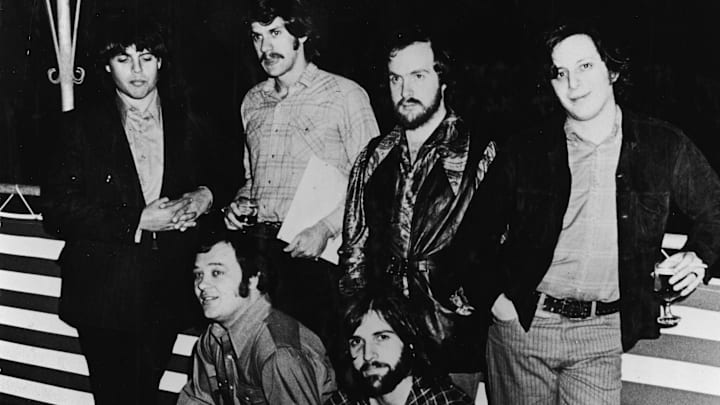Cold Blood
Novelist Truman Capote had no involvement with the band, at least not as far as I've been able to ascertain. But the legendary promoter Bill Graham liked them enough to sign them to play the Fillmore West. Cold Blood is unique among these bands, as they featured a female lead singer, Lydia Pense. Listen to "If You Will," the second cut on their debut album, 1969's Cold Blood. You'll know why Pense drew instant comparisons to Janis Joplin.
The band followed that up with 1970's Sisyphus, then First Taste of Sin in 1972, and Thriller in 1973. And you thought Michael Jackson was the first one there. Lead guitarist Larry Field assembled a killer lineup featuring two trumpets, two saxes, trombone, bass, percussion, and the legendary Hammond B-3 organ.
Under the name Lydia Pense & Cold Blood, the band is still recording and touring today. You want to hear raw power? Check out their 1970 single, "You Got Me Hummin'," from their debut album.
Chicago
I refuse to apologize to my editor for the inclusion of this band. You see, when he thinks of one of the greatest bands of the 1970s, he hears that bubble-gum trash from Peter Cetera. Yeah, I know, one man's trash, etc., etc., but I won't apologize for that characterization. Yes, he was in the original lineup of the band as their bassist, but he hadn't yet polluted their music with his saccharine ballads.
Powered by the keyboards and vocals of Robert Lamm, Walter Parazaider's sax, James Pankow's trombone, Lee Loughnane's trumpet, Danny Seraphine's drums, Setera's bass, and the phenomenal guitar licks of Terry Kath, Chicago Transit Authority generated four hit singles from their debut album, including "Does Anybody Really Know What Time It Is" and "Beginnings."
Forced to play nice by a certain mass transit corporation, the group shortened its name. Their follow-up album, 1970's Chicago, was their true breakthrough. The powerhouse singles "Make Me Smile" and Colour My World" were both lifted from the brilliant 13-minute suite from side two, "Ballet For a Girl From Buchannon." The raw, raspy vocals are provided by Terry Kath, their astonishingly great guitarist. For me, that is the true sound of Chicago.
Their third album, Chicago III, featured even more instrumental suites, but Columbia Records wanted more catchy singles. After that, the band began to turn toward a more commercial pop sound. Eventually, they began cranking out soulless hits like several other bands of the '70s. The rise and fall of Chicago is a subject that requires a much deeper dive. That is, assuming my editor allows me to ever write again for the site.
